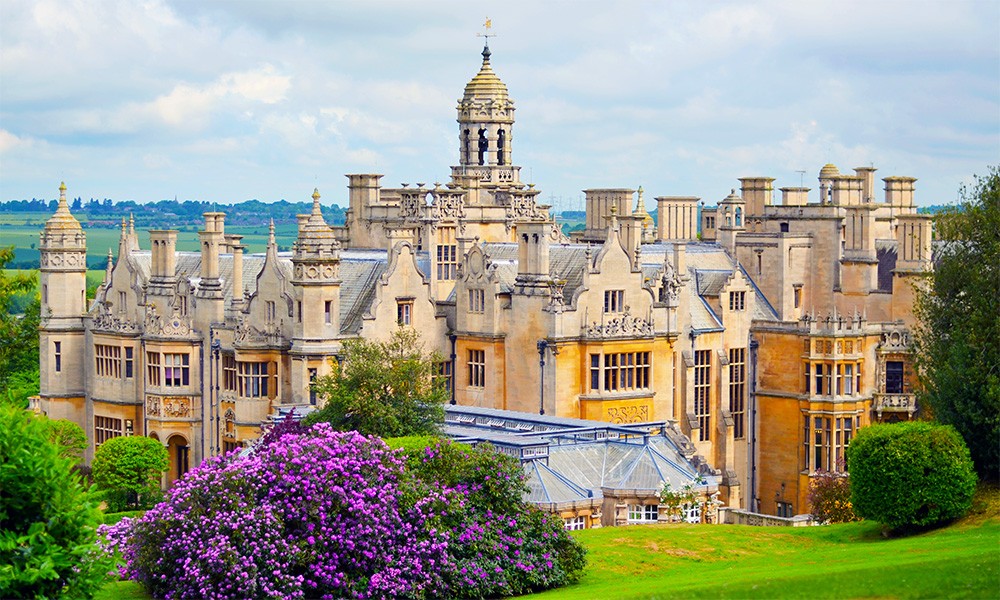Study Abroad 2024: Making Britishness
Program Overview

Building the British Empire through Goods and Vice
For every “Downton Abbey,” there is a Jack the Ripper….
For every refined king and queen, a scandal waiting to be exposed…
Tartans and teacups are not quite as British as you think…
In our program, we will explore the Britain most Americans never see, and Britons don’t want you to!
This is the story of the “Other,” how Britain was made through the lens of what it was not. We do this through two courses. One is history. In "Britain's Sordid Secrets," we learn all about how Britons defined themselves as being "civilized," "proper," and "moral," in contrast to everyone else. We examine the “saints” and the “sinners,” through the seedy underbelly British people outwardly despised as “un-British,” yet indulged in, openly and in secret, and how vice shaped race, class, gender, and the rise and fall of the British nation and empire.
The other is design. Here, we investigate how Britain, and the Empire took visual culture from ‘foreign” lands” to reinforce its identity as a world power in the 18th and 19th centuries. Our understanding of “Britishness” is actually rooted in the Industrial Revolution, design was the mark of class-revolution and identity. Britain scavenged the world using Indian, Asian, and Celtic cultures to demonstrate its self-identity as a powerful international empire, while reinforcing its growing class system. “Exoticized” art, architecture and fashion reveal the economic impact of not only trade, but how the British Empire utilized the visual culture of others to expand its own identity as a global power.
This program begins in Harlaxton Manor, a 150-room estate in the heart of the English countryside. Here, students will take classes with UC Blue Ash professors before traveling to various locations throughout Great Britain, from the Scottish Highlands to the bustle of London, exploring class topics in-depth.
The program offers two 3-credit hour courses. Students may take one or both:
- HIST 2050 | Britain's Sordid Secrets: Vice and British History, 1500 to Today.
- CMDS 2095 | Patterns of Trade: The British Empire, Design & Identity
**No prerequisites required**
- Location: England (Harlaxton, London), Scotland (Edinburgh, Glasgow)
- Dates: May 5 – May 29, 2024
- Estimated Cost: $5,100
Courses Offered
History 2050 - Britain's Sordid Secrets: Vice and British History, 1500 to Today
- 3 credit hours HP, DCI
- Professor Timothy Forest, PhD
In this class, we will learn all about how Britons defined themselves as being "civilized," "proper," and "moral," in contrast to everyone else. From Victoria to Jack the Ripper, Henry VIII to Florence Nightingale, Blackbeard to Harry (and Meghan), we examine the “saints” and the “sinners,” through the seedy underbelly British people outwardly despised as “un-British,” yet indulged in openly and in secret, and how vice shaped race, class, gender, and the rise and fall of the British nation and empire. Participants will visit the places where these British identities were constructed, from castles to dungeons, from royal palaces to Dickensian orphanages, following the steps of the holy, and the hellish.
Art & Visual Comm CMDS 2095 - Patterns of Trade: The British Empire, Design & Identity
- 3 credit hours HP, SCA
- Professor Carla Cesare, PhD
In this course students investigate how the British Empire used the visual culture of non-British cultures to reinforce its identity as a world power in the 18th and 19th centuries. Our twenty-first century understanding of Britain and ideas of “Britishness” is rooted in much earlier ideas derived from the industrial revolution; with design as the visual marker of identity. The industrial revolution took Britain beyond its geographic and cultural boundaries to other (largely colonized) cultures, making it an essential source of Britain’s identity. Indian, Asian, and Celtic cultures were used to reinforce its self-identity as an international empire. Seen through a variety of disciplines including art, architecture, and fashion, these objects and their design reveal the economic impact of not only trade, but how the British Empire utilized visual motifs to expand its identity as a global power.
Resources
Contact Information
UCBA Study Abroad
ucbastudyabroad@uc.edu